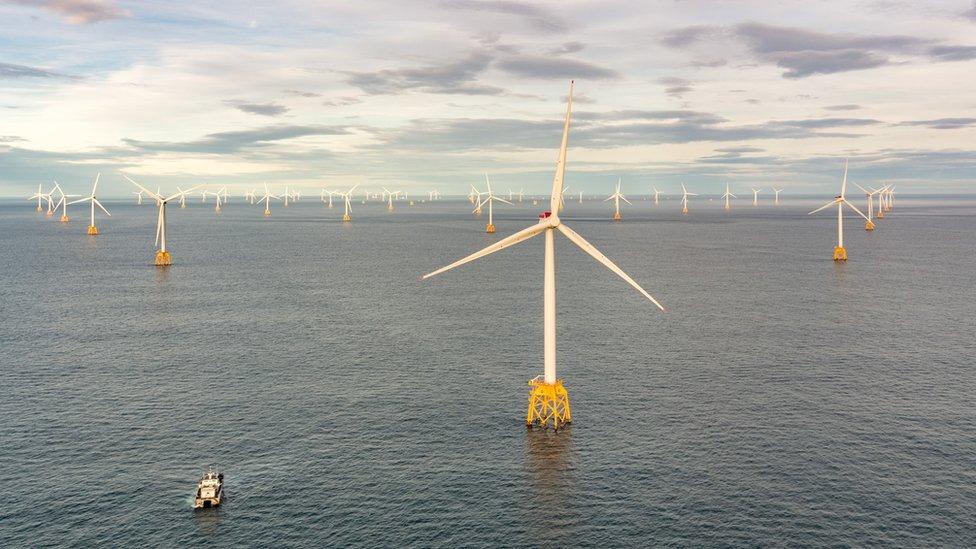Parking bans and clean air: The cities with a vision for going green
- Published
- comments
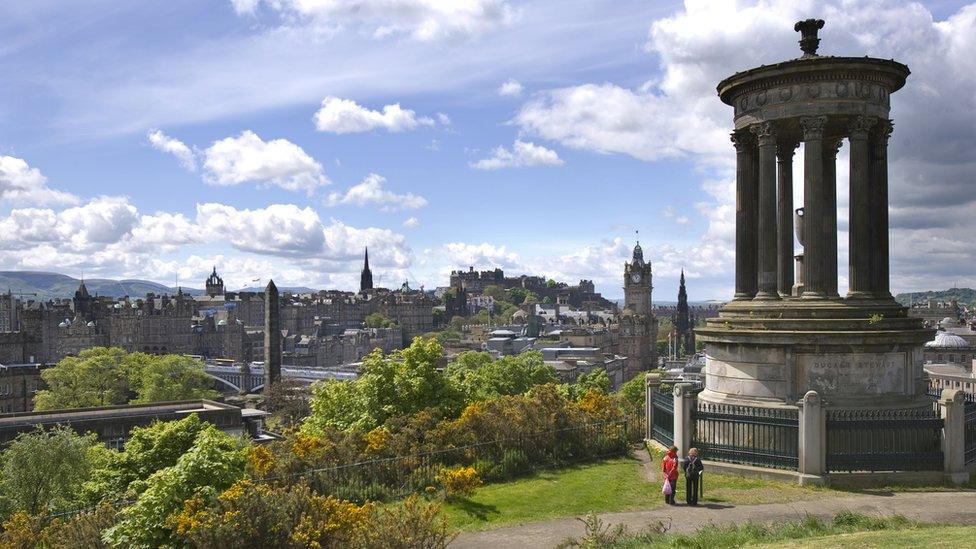
Edinburgh and Glasgow are battling to become the first "net zero" cities in the UK
Scotland is soon to be the focus of global attention with the UN climate change summit drawing ever closer.
The event will be held in Glasgow, which is battling with Edinburgh to become the UK's first "net zero" city - placing their greenhouse emissions at a neutral level.
But plans to cut traffic are in motion across the country in addition to numerous rejuvenation projects to create greener, more attractive public spaces.
What is climate change?
Parking and traffic clampdown
Glasgow faces a number of challenges before meeting its 2030 target, particularly city centre congestion and pollution.
However, it was the first Scottish city to introduce a low-emission zone.
More improvements have been made in the past year, such as two new camera-controlled bus gates either side of Central Station.
One of the council's latest plans is to limit vehicles around George Square as part of multi-million project that could ultimately ban parking in the area entirely.
A public consultation held over October and November last year showed huge public support for less traffic, more pedestrian areas and more green spaces for relaxing.
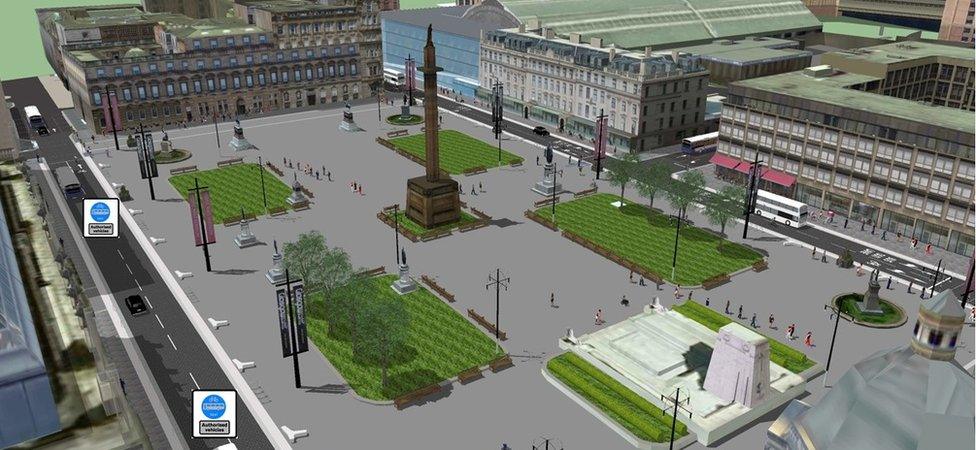
Plans to limit vehicles on George Square will be considered by the council
Next week the council will consider a proposal to fully pedestrianise the east and west sides of the square - at the City Chambers and Merchants House, respectively.
The north and south sides would allow public transport and cyclists. If approved this phase could be in place before the UEFA European Football Championships in June.
Further permanent works could also be carried out after the summer of 2023 to improve connectivity just beyond the square, costing an additional £3m.
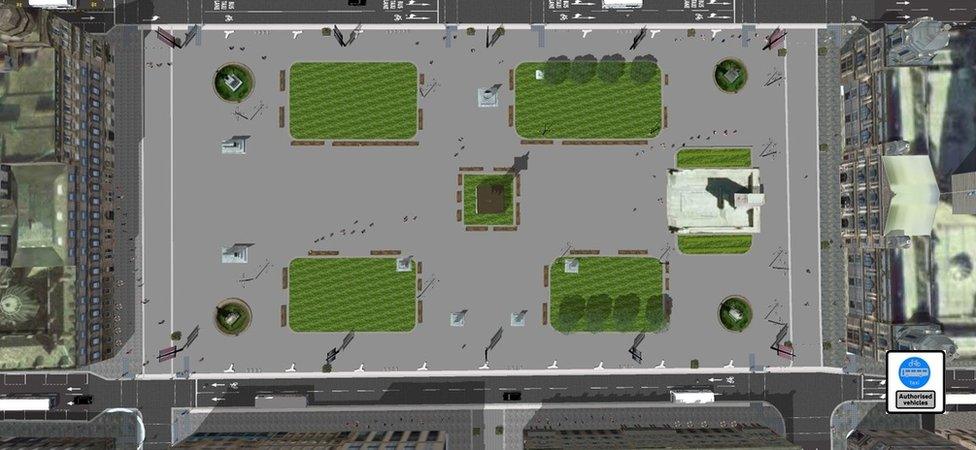
Parking will be completely banned in the area if proposals are green-lit
Facelift for historic space
There are also a number of ongoing projects in Aberdeen aimed at both cutting traffic and breathing new life into one of the city's most historic spaces.
Like Glasgow, Aberdeen council bosses are considering plans to ban vehicles from certain streets overnight in order to make them safer and "more welcoming".
The ban would apply between 22:00-05:00 on certain areas off Union Street, which runs through the heart of the city.
Certain exemptions would include emergency vehicles and cyclists.
Meanwhile, Union Terrace Gardens - a historic park and thoroughfare - is in the middle of a refurbishment which took more than 10 years to get moving.
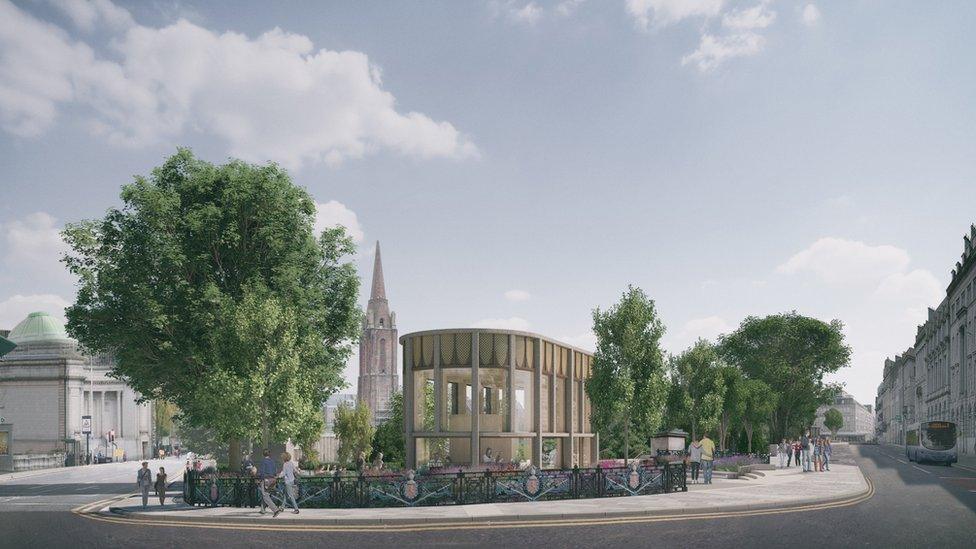
The design for Union Terrace Gardens includes new walkways and new disabled parking
Since 2007, swaying public opinion and councillor debates have seen several proposals scrapped, plus £50m of investment from businessman Sir Ian Wood taken off the table.
Finally, a £25.7m facelift was accepted, including new walkways, an amphitheatre, a play area, cafe, and improved toilets.
However, project director Kirstin Taylor said the design would allow "easier and more inviting access" and include new disabled parking and lifts into the gardens.
It is expected to be completed in the summer of next year.
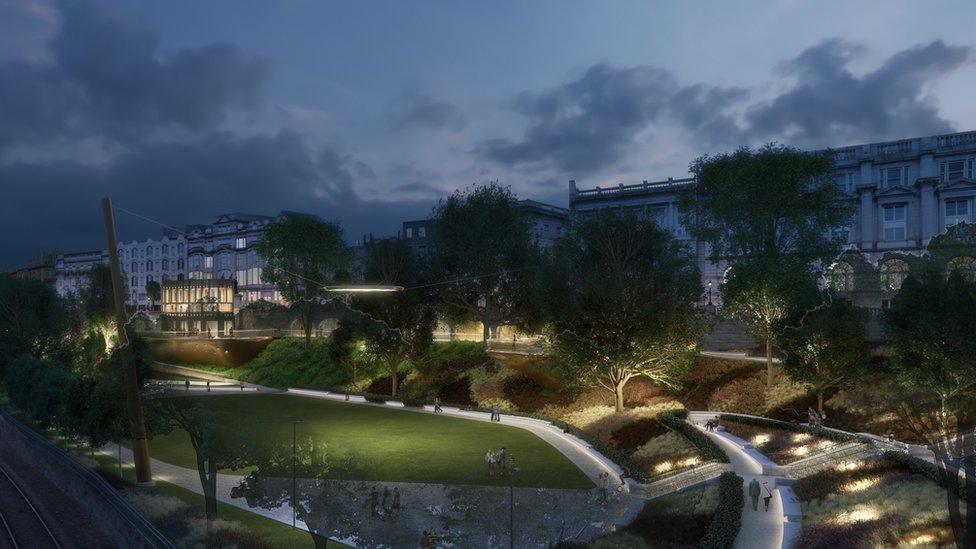
The sunken gardens originally opened in 1879.
Emissions targeted
Edinburgh has rolled out a number of green projects in the past year with several more on the horizon.
It became the first city in the UK to join the Open Streets movement by closing certain areas of the Old Town between midday and 17:00 on the first Sunday of each month.
By the end of 2020 it is hoped that the capital will introduce Scotland's second low emission zone, which means older cars will have to pay to enter the city centre.
Another broader city-wide zone would apply to buses, coaches and commercial vehicles.
And earlier this month the council published plans for radical changes over the next 10 years to make the city carbon neutral.
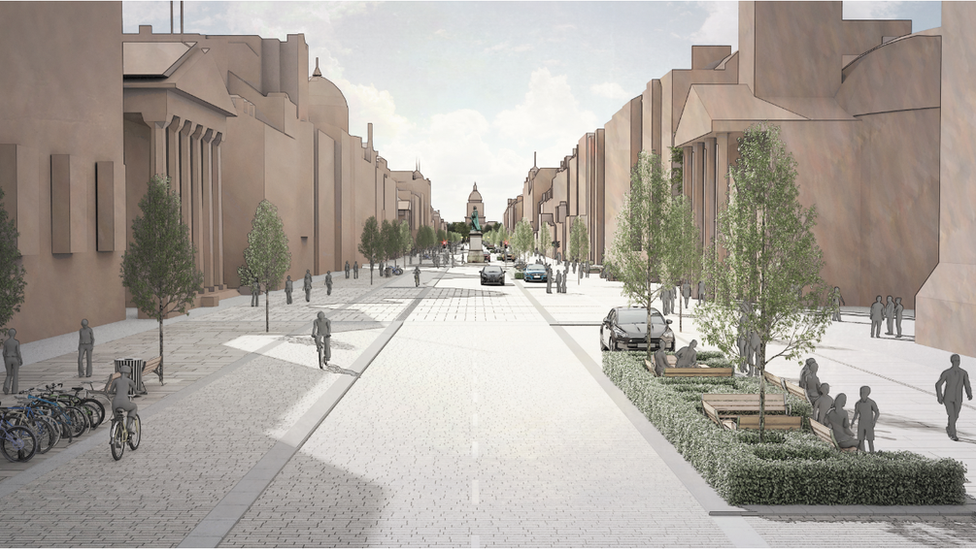
An artist's impression of how a pedestrianised George Street would look
If the proposals go ahead, large portions of Edinburgh would become pedestrianised, George Street would be shut to vehicles by 2025 and the tram network extended by the end of the decade.
Along with Glasgow, Edinburgh is the only other Scottish city to signal that it would introduce the workplace parking levy.


Use the tool below and we could be in touch.
If you are reading this page on the BBC News app, you will need to visit the mobile version of the BBC website to submit your question on this topic.
- Published9 September 2019
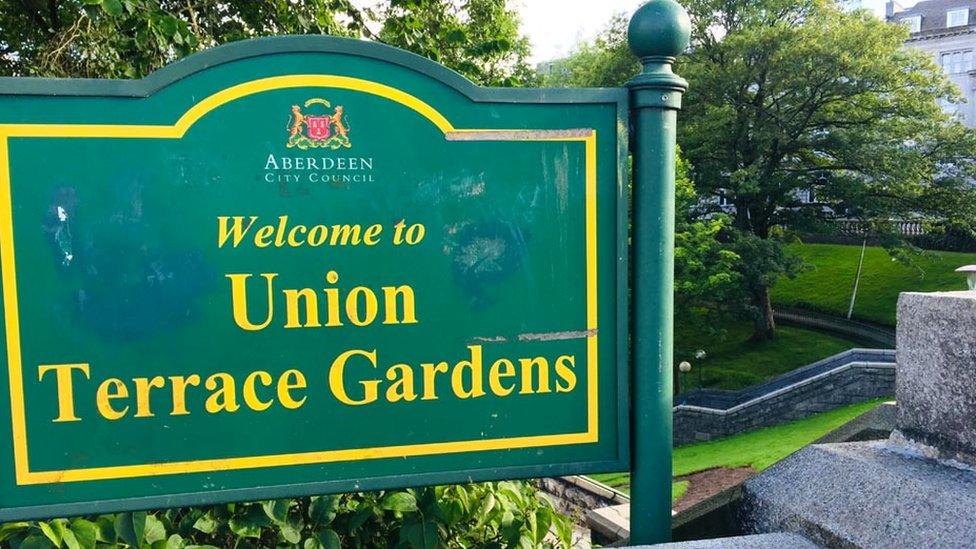
- Published17 January 2020
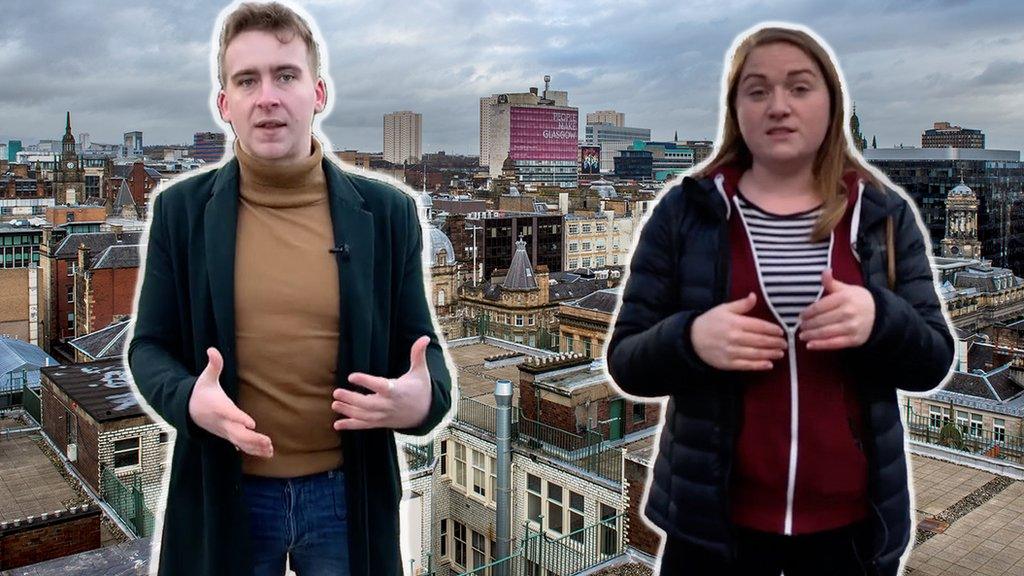
- Published18 December 2020
